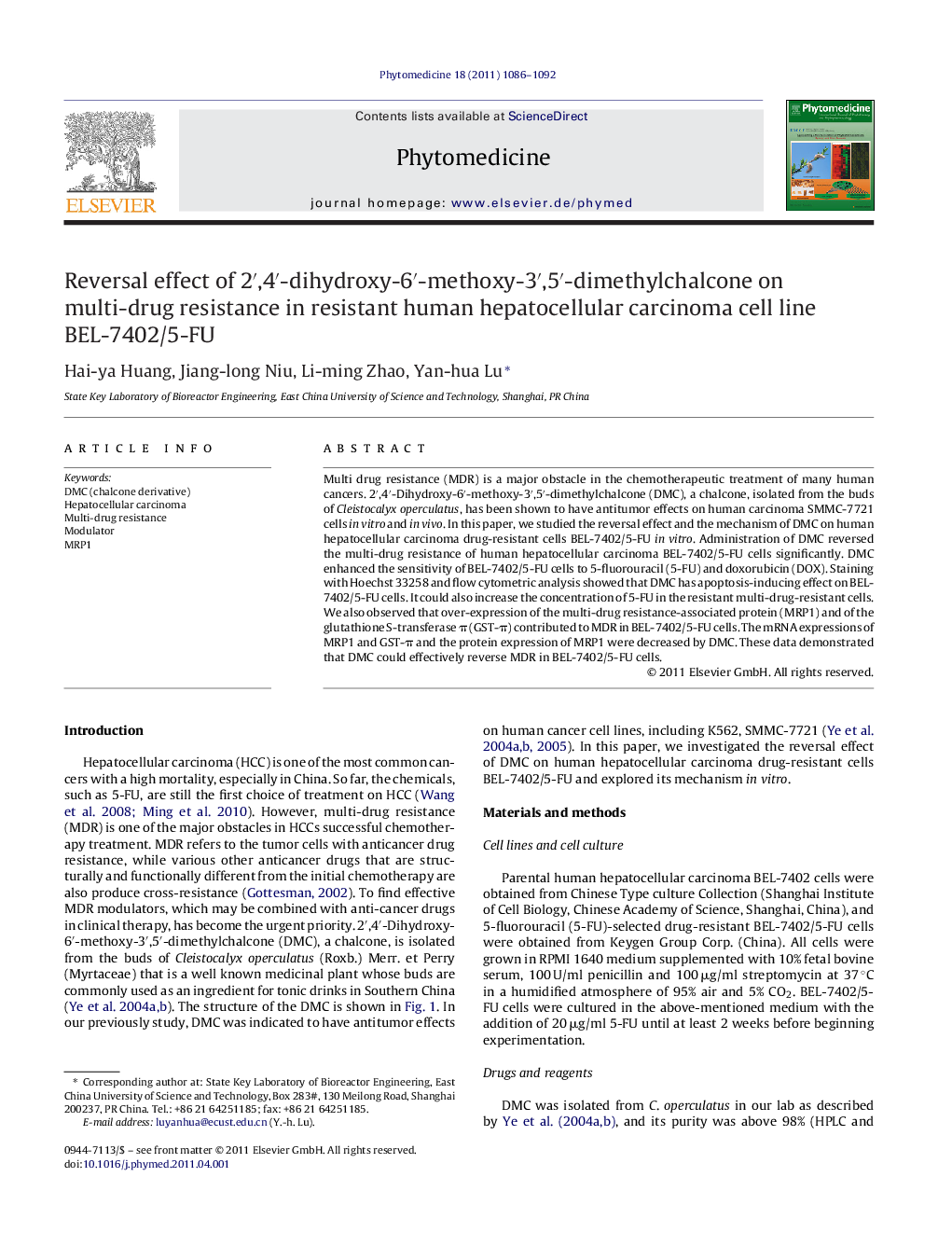| Article ID | Journal | Published Year | Pages | File Type |
|---|---|---|---|---|
| 5816939 | Phytomedicine | 2011 | 7 Pages |
Abstract
Multi drug resistance (MDR) is a major obstacle in the chemotherapeutic treatment of many human cancers. 2â²,4â²-Dihydroxy-6â²-methoxy-3â²,5â²-dimethylchalcone (DMC), a chalcone, isolated from the buds of Cleistocalyx operculatus, has been shown to have antitumor effects on human carcinoma SMMC-7721 cells in vitro and in vivo. In this paper, we studied the reversal effect and the mechanism of DMC on human hepatocellular carcinoma drug-resistant cells BEL-7402/5-FU in vitro. Administration of DMC reversed the multi-drug resistance of human hepatocellular carcinoma BEL-7402/5-FU cells significantly. DMC enhanced the sensitivity of BEL-7402/5-FU cells to 5-fluorouracil (5-FU) and doxorubicin (DOX). Staining with Hoechst 33258 and flow cytometric analysis showed that DMC has apoptosis-inducing effect on BEL-7402/5-FU cells. It could also increase the concentration of 5-FU in the resistant multi-drug-resistant cells. We also observed that over-expression of the multi-drug resistance-associated protein (MRP1) and of the glutathione S-transferase Ï (GST-Ï) contributed to MDR in BEL-7402/5-FU cells. The mRNA expressions of MRP1 and GST-Ï and the protein expression of MRP1 were decreased by DMC. These data demonstrated that DMC could effectively reverse MDR in BEL-7402/5-FU cells.
Related Topics
Life Sciences
Biochemistry, Genetics and Molecular Biology
Clinical Biochemistry
Authors
Hai-ya Huang, Jiang-long Niu, Li-ming Zhao, Yan-hua Lu,
